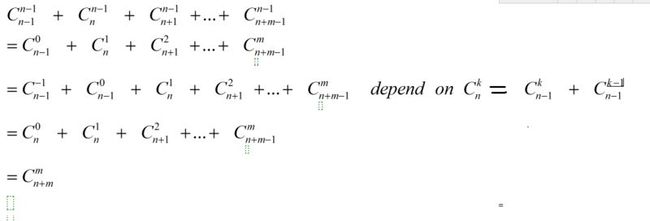- C#中使用split分割字符串
互联网打工人no1
c#
1、用字符串分隔:usingSystem.Text.RegularExpressions;stringstr="aaajsbbbjsccc";string[]sArray=Regex.Split(str,"js",RegexOptions.IgnoreCase);foreach(stringiinsArray)Response.Write(i.ToString()+"");输出结果:aaabbbc
- 【PG】常见数据库、表属性设置
江无羡
数据库
PG的常见属性配置方法数据库复制、备份相关表的复制标识单表操作批量表操作链接数据库复制、备份相关表的复制标识单表操作通过ALTER语句单独更改一张表的复制标识。ALTERTABLE[tablename]REPLICAIDENTITYFULL;批量表操作通过代码块的方式,对某个schema中的所有表一起更新其复制标识。SELECTtablename,CASErelreplidentWHEN'd'TH
- 98_es生产集群部署之针对集群重启时的shard恢复耗时过长问题定制的重要参数
小山居
98_es生产集群部署之针对集群重启时的shard恢复耗时过长问题定制的重要参数shardrecovery配置以及集群重启时的无意义shard重分配问题在集群重启的时候,有一些配置会影响shard恢复的过程。首先,我们需要理解默认配置下,shard恢复过程会发生什么事情。如果我们有10个node,每个node都有一个shard,可能是primaryshard或者replicashard,你有一个i
- Ubuntu Juju 与 Ansible的区别
xidianjiapei001
#Kubernetesubuntuansiblelinux云原生Juju
JujuandAnsiblearebothpowerfultoolsusedformanagingandorchestratingITinfrastructureandapplications,buttheyhavedifferentapproachesandusecases.Here’sabreakdownofthekeydifferencesbetweenthem:1.ConceptualFo
- mysql case 干货
lack倪酱
这是我舍友@某人提供的是为了做酒店时判断每个楼栋有几间空房子的。房间表与数据楼栋表与数据查询楼栋房间总数查询空房间数当时就在想怎么把后一个单列的数据合并到前面那三列的数据里呢?又是百度,又是谷歌,都是什么“unitall”。。表示我要的不是这个。有点难为我小脑瓜,实在是对数据库不了解,只会日常操作。最后是我舍友想出了解决办法直接贴图好了,如果想要了解case是什么,你可以自行查资料。学习查东西也是
- udp的广播,多播,单播 demo
mengzhi啊
udp网络
enumclassEMsgType:uint8_t{EMSGT_SINGLE,//单播EMSGT_MULTICAST,//多播EMSGT_BROADCAST,//广播};sendSocket=newQUdpSocket(this);sendSocket->setSocketOption(QAbstractSocket::MulticastTtlOption,1);sendSocket->bind(
- 2020-11-12 写单片机内存的脚本 nc openocd 事务自动测试
linuxScripter
这是写单片机内存的脚本:z@z-ThinkPad-T400:~/zworkT400/EDA_heiche/zREPOgit/simple-gcc-stm32-project$catz.wholeRun.oneCase.cmdcattmp6.toWrite|awk'{system("echomwb"$1""$2"|nclocalhost4444");}'catUSER/DEBUG/debug.h|g
- 佳音之日更葡萄酒I Day20 特别篇 - 天堂园 Il Paradiso di Manfredi
葡萄酒一杯靈
#佳音OneDayWine#IlParadisodiManfredi#BrunellodiMontalcino#Biodynamie#意大利#每日一酒曾任经典奇昂蒂葡萄酒协会(ConsorziodelVinoChiantiClassico)的主席,意大利CastelloDiAma”阿玛堡”庄主MarcoPallanti说过一句话﹕“Today,allwineisgood;thedifference
- 如果面试官问你CAS,你还这么答,可能就要回去等通知了
爱玛士
程序员面试Javajava面试开发语言程序员架构
前言大家好,我是JAVA高级开发之路,一个总在为粉丝解决面试题的程序员。最近有几个粉丝说在面试面试中遇到了CAS的问题,连着几次面试都没有让面试官满意,区区CAS底层源码,怎能难倒咱们这届程序员们呢?都支棱起来,跟我一起来搞定CAS底层源码。什么是CASCAS的全称是Compare-And-Swap,它是CPU并发原语。它的功能是判断内存某个位置的值是否为预期值,如果是则更改为新的值,这个过程是原
- SQL server CROSS JOIN 的用法
潇锐killer
数据库sql
SELECT@DateThresholdasdt,t3.ck_id,t3.ck_name,t3.title_id,t3.title,casewhent4.numisnullthen0elset4.numendnum,casewhent4.moneyisnullthen0elset4.moneyendmoney,t3.startDay,t3.endDayfrom(SELECTt1.ck_id,t1.
- <轻松一刻> 将-1赋值到unsigned char变量会发生什么?
是帅气的二狗
c++
将-1赋值到unsignedchar变量会发生什么?文章目录将-1赋值到unsignedchar变量会发生什么?前言1.无符号整数溢出2.赋值-1到unsignedchar变量3.示例代码错误示例:正确示例:4.static_cast的用法(划重点)5.static_cast的语法6.示例:static_cast的使用7.注意事项总结前言我们都知道unsignedchar的取值范围是从0到255,
- Groovy -> Groovy 流程控制语句
Yang-Never
Groovy开发语言gradleidea
判断语句defx=10if(x>0){println"xispositive"}elseif(x0)?"positive":"non-positive"printlnresult//输出"positive"//log"positive"分支语句//分支语句判断数据类型defcheckType(value){switch(value){caseInteger:println"Thevalueisan
- 使用 Apache Cassandra 实现 LLM 缓存:提升 AI 应用性能的实用指南
afTFODguAKBF
apache缓存人工智能python
使用ApacheCassandra实现LLM缓存:提升AI应用性能的实用指南引言在当今的AI驱动的应用程序中,大语言模型(LLM)扮演着越来越重要的角色。然而,频繁调用LLMAPI不仅会增加延迟,还会导致高昂的成本。为了解决这个问题,实现有效的缓存策略变得至关重要。本文将介绍如何使用ApacheCassandra®或AstraDB来实现LLM缓存,从而显著提升您的AI应用性能和成本效率。为什么选择
- go 语言常见问题(4)
jzpfbpx
golang开发语言后端
31.go语言编程的好处是什么编译和运行都很快。在语言层级支持并行操作。有垃圾处理器。内置字符串和maps。函数是go语言的最基本编程单位。32.说说go语言的select机制select机制用来处理异步IO问题select机制最大的一条限制就是每个case语句里必须是一个IO操作golang在语言级别支持select关键字33.解释一下go语言中的静态类型声明静态类型声明是告诉编译器不需要太多的
- 达梦CASE_SENSITIVE参数解析
挠背小能手
达梦数据库运维数据库
1.参数含义标识符大小写敏感,默认值为Y。当大小写敏感时,小写的标识符应用双引号括起,否则被转换为大写;当大小写不敏感时,系统不自动转换标识符的大小写,在标识符比较时也不区分大小写。CASE_SENSITIVE大小敏感(Y),可选值:Y/N,1/0。该参数属于初始化参数,在创建实例时候定下来的,在参数配置文件dm.ini里没有记录。大小写敏感通常涉及到2种对象:对象名数据2.环境描述3.创建实例3
- 测者的测试技术手册:Junit执行单元测试用例成功,mvn test却失败的问题和解决方法
Criss陈磊
今天遇见了一个奇怪的问题,在IDE中rununittest,全部cases都成功了,但是后来通过mvntest运行case确保错了。在寻求原因的同时也找到了对应的解决方法。RunUnitTest和Maventest的区别差异1:在IDE中通过选中单元测试路径,点击右键选择runtest和点击maven中的test是有区别的。在Maven执行测试的过程中,是不允许测试cases访问其他项目的测试类和
- c++的类型转换static_cast、reinterpret_cast、const_cast、dynamic_cast
小丑西瓜666
c++开发语言基础语法类型转换
目录为什么C++需要四种类型转换的函数1static_cast2reinterpret_cast3const_cast4dynamic_cast在c++的库里面有四种类型static_cast、reinterpret_cast、const_cast、dynamic_cast为什么C++需要四种类型转换的函数应为看不惯C语言松弛感,为了让语言更规范,更严谨就自己造了这几个函数,当然c++肯定是兼容C
- C++11知识点汇总
GeniusAng丶
C/C++编程c++多线程生产者消费者线程间互斥线程间同步互斥锁CAS
课程总目录文章目录一、C++11常用关键知识点梳理1.1关键字和语法1.2绑定器和函数对象1.3智能指针1.4容器二、C++语言级别支持的多线程编程2.1通过thread类编写C++多线程程序2.2线程间互斥2.3线程间同步通信-生产者消费者模型2.4再谈lock_guard和unique_lock2.5基于CAS操作的atomic原子类型一、C++11常用关键知识点梳理1.1关键字和语法auto
- 静态库制作和使用
打酱油的;
linux文件系统编程静态库linuxC语言制作编译
静态库可以认为是一些目标代码的集合,是在可执行程序运行前就已经加入到执行码中,成为执行程序的一部分。按照习惯,一般以“.a”做为文件后缀名。静态库的命名一般分为三个部分:前缀:lib库名称:自己定义即可后缀:.a所以最终的静态库的名字应该为:libxxx.a1)静态库制作步骤1:将c源文件生成对应的.o文件deng@itcast:~/test/3static_lib$gcc-cadd.c-oadd
- kubernetes里面那些事————控制器
背锅攻城师
kuberneteskubernetes容器云原生
资源-控制器一,控制器作用二,控制器类型2.1,Deployment:无状态应用部署2.2,DaemonSet:确保所有Node运行同一个pod2.3,StatefulSet:有状态应用部署2.4,Job:一次性任务2.5,CronJob:定时任务2.6,pod2.7,service2.8,replicaset2.9,endpoints三,控制器yaml应用3.1,Deployment3.2,Da
- Android清洁架构实战教程:基于AliAsadi/Android-Clean-Architecture
符凡言Elvis
Android清洁架构实战教程:基于AliAsadi/Android-Clean-ArchitectureAndroid-Clean-ArchitectureAdemomovieandroidappshowcasingCleanArchitecture,writteninKotlinandfeaturingJetpackComposeformodern,declarativeUIs.(Offlin
- VBA ado 把CSV文件当做数据源进行 查询操作
weixin_33937913
数据库
SubF_Sample006()'MicrosoftActiveXDataObjects2.XLibrary'F_Data.csvDimmyConAsNewADODB.ConnectionDimmyRstAsNewADODB.RecordsetDimmyCncAsStringDimmyCmdAsStringDimmyFileNameAsStringDimiAsLongmyFileName="F_D
- mysql优化案例 纯demo案例 sql写法优化 不包含索引优化等
pingzhuyan
#mysql专项mysqlsql数据库java
全文目录,一步到位1.前言简介2.sql优化案例(持续填充)2.1casewhenthen里面查询多表的2.1.1原sql2.1.2优化后的sql2.22.2.12.2.22.32.3.12.3.22.42.4.12.4.23.文章的总结与预告3.1本文总结3.2下文预告1.前言简介sql优化案例:测试草稿篇感觉可以优化的记录做过测试的会标记记录而已参考价值如有错误请指出谢谢2.sql优化案例(持
- flutter开发多端平台应用的探索 上(基本操作)
夏目艾拉
flutter设计模式javaandroid
前言Flutter是一个跨平台的开发框架,它允许开发者使用相同的代码库来构建iOS、Android、Web和桌面应用程序。最近想了想,自己一直在用flutter开发特定端的应用,但是对于其他端的端特性case,如桌面端的菜单、多窗口、鼠标事件,需要怎么处理还没什么概念,本文旨在简单探索这方面的内容。正文首先就是判断平台了,可以通过如下方式import'dart:io'showPlatform;vo
- 小麦子的ScalersTalk第四轮新概念朗读持续力训练Day66 20121212
小麦_3982
练习材料:Lesson66Sweetashoney!In1963aLancasterbombercrashedonWallisIsland,aremoteplaceintheSouthPacific,alongwaywestofSamoa.Theplanewasn'ttoobadlydamaged,butovertheyears,thecrashwasforgottenandthewreckrem
- ios7 手势滑动切换ViewController 问题总结
wxcswd
ios
在handleGesture函数中注意ViewController的dismiss应该放在caseUIGestureRecognizerStateBegan滑动切换dismiss掉之后,必须在present出该ViewController的响应函数中添加判断if(!self.presentedViewController)//presentedViewController在其头文件中说明为read
- Java学习中,强制类型转换时,没有检查兼容性,引发 ClassCastException怎么办?
Itmastergo
java学习开发语言
Java是一门强类型语言,这意味着在编译时,变量的数据类型已经确定。然而,在实际开发过程中,可能会遇到将对象转换为其他类型的需求,这时就会涉及到类型转换问题。Java提供了自动类型转换和强制类型转换两种方式来处理不同类型之间的转换。自动类型转换(隐式转换)是指编译器在满足某些条件的情况下,自动将一个类型的值转换为另一个兼容类型的值。例如,int类型的变量可以自动转换为double类型。然而,并不是
- ifconfig eth0网卡配置
lanhuazui10
linux命令
在嵌入式开发中,在设备运行的时候出现网络挂载问题时候,经常需要临时修改设备的ip地址,子网掩码,MAC地址,网关等,可以使用ifconfigeth0修改网卡的配置信息。ifconfig显示网络设备信息[root@localhost~]#ifconfigeth0Linkencap:EthernetHWaddr00:50:56:BF:26:20inetaddr:192.168.120.204Bcast
- 2018-12-09
一只猴子变成了钢笔
ThevisionthingByChrisGilesPublished:November25200820:24|Lastupdated:November25200820:24http://www.ft.com/cms/s/0/1c1d5a9e-bb29-11dd-bc6c-0000779fd18c.htmlIthasbeenabadyearforeconomicforecasters.Sobadt
- Oracle 用户及角色 介绍
iteye_3158
数据库
一.用户管理1.1建立用户(数据库验证)CREATEUSERDAVEIDENTIFIEDBYpwdDEFAULTTABLESPACEusersTEMPORARYTABLESPACEtempQUOTA5mONusers;1.2修改用户ALTERUSERDAVEQUOTA0ONSYSTEM;1.3删除用户DROPUSERDAVE;DROPUSERDAVECASCADE;1.4显示用户信息SELECT*
- sql统计相同项个数并按名次显示
朱辉辉33
javaoracle
现在有如下这样一个表:
A表
ID Name time
------------------------------
0001 aaa 2006-11-18
0002 ccc 2006-11-18
0003 eee 2006-11-18
0004 aaa 2006-11-18
0005 eee 2006-11-18
0004 aaa 2006-11-18
0002 ccc 20
- Android+Jquery Mobile学习系列-目录
白糖_
JQuery Mobile
最近在研究学习基于Android的移动应用开发,准备给家里人做一个应用程序用用。向公司手机移动团队咨询了下,觉得使用Android的WebView上手最快,因为WebView等于是一个内置浏览器,可以基于html页面开发,不用去学习Android自带的七七八八的控件。然后加上Jquery mobile的样式渲染和事件等,就能非常方便的做动态应用了。
从现在起,往后一段时间,我打算
- 如何给线程池命名
daysinsun
线程池
在系统运行后,在线程快照里总是看到线程池的名字为pool-xx,这样导致很不好定位,怎么给线程池一个有意义的名字呢。参照ThreadPoolExecutor类的ThreadFactory,自己实现ThreadFactory接口,重写newThread方法即可。参考代码如下:
public class Named
- IE 中"HTML Parsing Error:Unable to modify the parent container element before the
周凡杨
html解析errorreadyState
错误: IE 中"HTML Parsing Error:Unable to modify the parent container element before the child element is closed"
现象: 同事之间几个IE 测试情况下,有的报这个错,有的不报。经查询资料后,可归纳以下原因。
- java上传
g21121
java
我们在做web项目中通常会遇到上传文件的情况,用struts等框架的会直接用的自带的标签和组件,今天说的是利用servlet来完成上传。
我们这里利用到commons-fileupload组件,相关jar包可以取apache官网下载:http://commons.apache.org/
下面是servlet的代码:
//定义一个磁盘文件工厂
DiskFileItemFactory fact
- SpringMVC配置学习
510888780
springmvc
spring MVC配置详解
现在主流的Web MVC框架除了Struts这个主力 外,其次就是Spring MVC了,因此这也是作为一名程序员需要掌握的主流框架,框架选择多了,应对多变的需求和业务时,可实行的方案自然就多了。不过要想灵活运用Spring MVC来应对大多数的Web开发,就必须要掌握它的配置及原理。
一、Spring MVC环境搭建:(Spring 2.5.6 + Hi
- spring mvc-jfreeChart 柱图(1)
布衣凌宇
jfreechart
第一步:下载jfreeChart包,注意是jfreeChart文件lib目录下的,jcommon-1.0.23.jar和jfreechart-1.0.19.jar两个包即可;
第二步:配置web.xml;
web.xml代码如下
<servlet>
<servlet-name>jfreechart</servlet-nam
- 我的spring学习笔记13-容器扩展点之PropertyPlaceholderConfigurer
aijuans
Spring3
PropertyPlaceholderConfigurer是个bean工厂后置处理器的实现,也就是BeanFactoryPostProcessor接口的一个实现。关于BeanFactoryPostProcessor和BeanPostProcessor类似。我会在其他地方介绍。PropertyPlaceholderConfigurer可以将上下文(配置文件)中的属性值放在另一个单独的标准java P
- java 线程池使用 Runnable&Callable&Future
antlove
javathreadRunnablecallablefuture
1. 创建线程池
ExecutorService executorService = Executors.newCachedThreadPool();
2. 执行一次线程,调用Runnable接口实现
Future<?> future = executorService.submit(new DefaultRunnable());
System.out.prin
- XML语法元素结构的总结
百合不是茶
xml树结构
1.XML介绍1969年 gml (主要目的是要在不同的机器进行通信的数据规范)1985年 sgml standard generralized markup language1993年 html(www网)1998年 xml extensible markup language
- 改变eclipse编码格式
bijian1013
eclipse编码格式
1.改变整个工作空间的编码格式
改变整个工作空间的编码格式,这样以后新建的文件也是新设置的编码格式。
Eclipse->window->preferences->General->workspace-
- javascript中return的设计缺陷
bijian1013
JavaScriptAngularJS
代码1:
<script>
var gisService = (function(window)
{
return
{
name:function ()
{
alert(1);
}
};
})(this);
gisService.name();
&l
- 【持久化框架MyBatis3八】Spring集成MyBatis3
bit1129
Mybatis3
pom.xml配置
Maven的pom中主要包括:
MyBatis
MyBatis-Spring
Spring
MySQL-Connector-Java
Druid
applicationContext.xml配置
<?xml version="1.0" encoding="UTF-8"?>
&
- java web项目启动时自动加载自定义properties文件
bitray
javaWeb监听器相对路径
创建一个类
public class ContextInitListener implements ServletContextListener
使得该类成为一个监听器。用于监听整个容器生命周期的,主要是初始化和销毁的。
类创建后要在web.xml配置文件中增加一个简单的监听器配置,即刚才我们定义的类。
<listener>
<des
- 用nginx区分文件大小做出不同响应
ronin47
昨晚和前21v的同事聊天,说到我离职后一些技术上的更新。其中有个给某大客户(游戏下载类)的特殊需求设计,因为文件大小差距很大——估计是大版本和补丁的区别——又走的是同一个域名,而squid在响应比较大的文件时,尤其是初次下载的时候,性能比较差,所以拆成两组服务器,squid服务于较小的文件,通过pull方式从peer层获取,nginx服务于较大的文件,通过push方式由peer层分发同步。外部发布
- java-67-扑克牌的顺子.从扑克牌中随机抽5张牌,判断是不是一个顺子,即这5张牌是不是连续的.2-10为数字本身,A为1,J为11,Q为12,K为13,而大
bylijinnan
java
package com.ljn.base;
import java.util.Arrays;
import java.util.Random;
public class ContinuousPoker {
/**
* Q67 扑克牌的顺子 从扑克牌中随机抽5张牌,判断是不是一个顺子,即这5张牌是不是连续的。
* 2-10为数字本身,A为1,J为1
- 翟鸿燊老师语录
ccii
翟鸿燊
一、国学应用智慧TAT之亮剑精神A
1. 角色就是人格
就像你一回家的时候,你一进屋里面,你已经是儿子,是姑娘啦,给老爸老妈倒怀水吧,你还觉得你是老总呢?还拿派呢?就像今天一样,你们往这儿一坐,你们之间是什么,同学,是朋友。
还有下属最忌讳的就是领导向他询问情况的时候,什么我不知道,我不清楚,该你知道的你凭什么不知道
- [光速与宇宙]进行光速飞行的一些问题
comsci
问题
在人类整体进入宇宙时代,即将开展深空宇宙探索之前,我有几个猜想想告诉大家
仅仅是猜想。。。未经官方证实
1:要在宇宙中进行光速飞行,必须首先获得宇宙中的航行通行证,而这个航行通行证并不是我们平常认为的那种带钢印的证书,是什么呢? 下面我来告诉
- oracle undo解析
cwqcwqmax9
oracle
oracle undo解析2012-09-24 09:02:01 我来说两句 作者:虫师收藏 我要投稿
Undo是干嘛用的? &nb
- java中各种集合的详细介绍
dashuaifu
java集合
一,java中各种集合的关系图 Collection 接口的接口 对象的集合 ├ List 子接口 &n
- 卸载windows服务的方法
dcj3sjt126com
windowsservice
卸载Windows服务的方法
在Windows中,有一类程序称为服务,在操作系统内核加载完成后就开始加载。这里程序往往运行在操作系统的底层,因此资源占用比较大、执行效率比较高,比较有代表性的就是杀毒软件。但是一旦因为特殊原因不能正确卸载这些程序了,其加载在Windows内的服务就不容易删除了。即便是删除注册表中的相 应项目,虽然不启动了,但是系统中仍然存在此项服务,只是没有加载而已。如果安装其他
- Warning: The Copy Bundle Resources build phase contains this target's Info.plist
dcj3sjt126com
iosxcode
http://developer.apple.com/iphone/library/qa/qa2009/qa1649.html
Excerpt:
You are getting this warning because you probably added your Info.plist file to your Copy Bundle
- 2014之C++学习笔记(一)
Etwo
C++EtwoEtwoiterator迭代器
已经有很长一段时间没有写博客了,可能大家已经淡忘了Etwo这个人的存在,这一年多以来,本人从事了AS的相关开发工作,但最近一段时间,AS在天朝的没落,相信有很多码农也都清楚,现在的页游基本上达到饱和,手机上的游戏基本被unity3D与cocos占据,AS基本没有容身之处。so。。。最近我并不打算直接转型
- js跨越获取数据问题记录
haifengwuch
jsonpjsonAjax
js的跨越问题,普通的ajax无法获取服务器返回的值。
第一种解决方案,通过getson,后台配合方式,实现。
Java后台代码:
protected void doPost(HttpServletRequest req, HttpServletResponse resp)
throws ServletException, IOException {
String ca
- 蓝色jQuery导航条
ini
JavaScripthtmljqueryWebhtml5
效果体验:http://keleyi.com/keleyi/phtml/jqtexiao/39.htmHTML文件代码:
<!DOCTYPE html>
<html xmlns="http://www.w3.org/1999/xhtml">
<head>
<title>jQuery鼠标悬停上下滑动导航条 - 柯乐义<
- linux部署jdk,tomcat,mysql
kerryg
jdktomcatlinuxmysql
1、安装java环境jdk:
一般系统都会默认自带的JDK,但是不太好用,都会卸载了,然后重新安装。
1.1)、卸载:
(rpm -qa :查询已经安装哪些软件包;
rmp -q 软件包:查询指定包是否已
- DOMContentLoaded VS onload VS onreadystatechange
mutongwu
jqueryjs
1. DOMContentLoaded 在页面html、script、style加载完毕即可触发,无需等待所有资源(image/iframe)加载完毕。(IE9+)
2. onload是最早支持的事件,要求所有资源加载完毕触发。
3. onreadystatechange 开始在IE引入,后来其它浏览器也有一定的实现。涉及以下 document , applet, embed, fra
- sql批量插入数据
qifeifei
批量插入
hi,
自己在做工程的时候,遇到批量插入数据的数据修复场景。我的思路是在插入前准备一个临时表,临时表的整理就看当时的选择条件了,临时表就是要插入的数据集,最后再批量插入到数据库中。
WITH tempT AS (
SELECT
item_id AS combo_id,
item_id,
now() AS create_date
FROM
a
- log4j打印日志文件 如何实现相对路径到 项目工程下
thinkfreer
Weblog4j应用服务器日志
最近为了实现统计一个网站的访问量,记录用户的登录信息,以方便站长实时了解自己网站的访问情况,选择了Apache 的log4j,但是在选择相对路径那块 卡主了,X度了好多方法(其实大多都是一样的内用,还一个字都不差的),都没有能解决问题,无奈搞了2天终于解决了,与大家分享一下
需求:
用户登录该网站时,把用户的登录名,ip,时间。统计到一个txt文档里,以方便其他系统调用此txt。项目名
- linux下mysql-5.6.23.tar.gz安装与配置
笑我痴狂
mysqllinuxunix
1.卸载系统默认的mysql
[root@localhost ~]# rpm -qa | grep mysql
mysql-libs-5.1.66-2.el6_3.x86_64
mysql-devel-5.1.66-2.el6_3.x86_64
mysql-5.1.66-2.el6_3.x86_64
[root@localhost ~]# rpm -e mysql-libs-5.1
